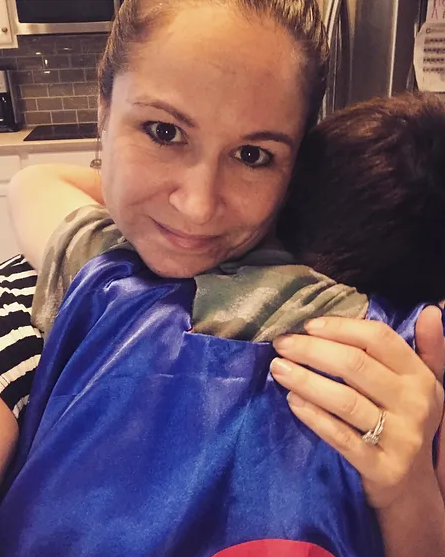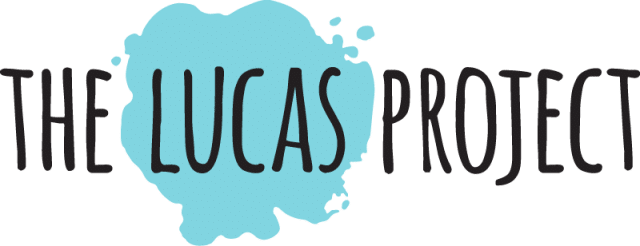
Parenthood. It’s often touted as a miraculous journey filled with love, joy, and a sense of purpose— a transformative experience that challenges us in countless ways, but also rewards us with boundless moments of connection and growth. All true, however, for parents of children with special needs, there’s more to the story.
Though not always apparent or openly discussed, the isolation faced by parents of children with special needs runs deep. It exists in the quiet moments of vulnerability, when they find themselves wrestling with feelings of inadequacy, comparison, guilt, or grief. It manifests in the longing for “normalcy”, understanding and empathy from those around them who, through no fault of their own, may be unable to comprehend the daily hurdles and struggles they face.
Over the past eleven years, my husband and I have struggled with maintaining a sense of normalcy in light of our son’s medical condition and resulting special needs. Having been brand new parents when he had his first seizure at four and a half months old, we didn’t get the opportunity to get our feet planted firmly in the parenting world before it all turned upside down. With heat and over-excitement being the usual seizure triggers for our son, it’s always been difficult to venture too far from the house without worrying about the unknowns. Early on when we tried to power through and continue with life as usual, our son’s seizures often chose to show us who was really in charge. On several occasions, while heading to visit with family and friends, our son suddenly went into tonic clonic seizures while buckled into his car seat leading us to panic, cancel plans and head home. After several attempts at outings such as this, we eventually retreated, feeling safest at home where we could control his surroundings and be on high alert at all times.
Now, with over a decade’s worth of experience and several hundred seizures behind us, I recently decided to buy tickets to see a local high school musical. My husband could not attend, so I was on my own with both kids, but I didn’t worry much about it. I had let my son’s seizures dictate our every move for years and now, with some experience in my rear view, I felt the time had come to try again and take our shot at a “normal” night out.
We arrived at the local high school with spirits high. Seeing friends and neighbors as we funneled inside added to the excitement. A steady stream of self-talk bombarded my brain… “This is what “normal” families do, huh? Fun! Are we blending? I think we’re blending….” We made our way into the theater and soon the lights went down. From the moment the show began, both kids had huge smiles on their faces and I felt a small sense of victory. After all, we were there—amongst the other “typical” families—smiling, enjoying, living. As the cast of the play made their way down the aisles for the opening musical number, my son’s face lit up. He clapped along and smiled and when the song ended he simply said, “Again!”. My heart sang and I felt a surge of reassurance that coming out tonight was the right thing to do. “I’ve got this,” I thought.
Not a minute later, in the dark theater, I noticed that he was curling up into a tight ball and convulsing right there in his seat. My heart sank.
I consider myself a veteran first responder when it comes to my son’s seizures, but I’ve never experienced one in a crowded theater in near darkness and with an expectation of silence and decorum. I whispered to my daughter that he was having a seizure and asked her to get my bag. I stood up and scooped my son into my arms, nearly 65 pounds and still seizing, and carried him out of the theater and into the lobby. I didn’t need help, but I thought for sure someone would offer. Surely someone sitting near us saw me jump up and noticed me carrying a twelve year old boy, nearly my size, out in a hurry? If they did, they never said. As I laid him on the lobby floor to administer his rescue medication, I asked my daughter to head over to a group of ladies lingering by the concession stand to ask for some paper towels. She promptly returned and when no one followed I asked, “Did you tell them your brother is having a seizure?”. “Yes,” she responded. I looked up to see them continuing their conversation as if nothing was amiss. “No worries,” I thought to myself. “We’re used to it.”
It wasn’t the first time in my special needs parenting journey that I’ve felt completely invisible, lost in the crowd of people around me. From very early on in my journey through motherhood, I’ve felt like the sad sack on the sidelines. When attempting to meet other mom friends at the park for play dates, I watched as they casually sat on a bench enjoying a coffee and telling their child to be careful from afar. In contrast, I had to follow my son’s every move, prepared for a seizure at any time, my coffee going cold and the conversation I’d hoped to have with my friend doing the same. Needless to say, my attempts at this sort of socialization faded quickly and I retreated once again to the safety of our home.
Sadly, this is a common experience for many parents of children with special needs. We often feel invisible and forgotten in a world that doesn’t understand our struggles and is too busy enjoying their lives to notice our pain. So what are parents like us to do?
There are probably several things we could do, but I believe the most important is a simple mindset shift. We have to evaluate our assumption that everyone else is simply enjoying a carefree life. When I relayed our experience at the theater to a friend the next day, she was horrified that no one stepped in to help or ask if we were okay. I wasn’t though. I honestly don’t think anyone noticed what was really going on. You know the saying that tells us to be kind because everyone is fighting a battle we know nothing about? I repeat that to myself every time I feel offended that someone didn’t “see” my struggles. The reason why people don’t see my struggle is because they’re so fixated on their own.
When we compare our lives to an imaginary ideal, we set ourselves up for misery and “never-enoughness”. Whether it’s comparing our child’s milestones to those of typically developing children or measuring our own family dynamics against the seemingly perfect lives portrayed on social media, the result is a diminished sense of self-worth and an erosion of happiness. Instead, we must block out the noise and focus on what’s in front of us. For me, when it came to the theater, I could have focused on the seizure. I could have chosen to leave and deny my daughter the treat of a night out. Instead, I pulled my hair back, scooped my sleeping son back up, walked back into that theater and returned to our seats. Sure, our experience that night looked different than the other families that were there, but it was special nonetheless. Although he slept through the majority of the show, my son did wake up for the last song. He hopped off of my lap and returned to his seat, smiling and clapping, picking up where he left off.
Our experience at the play was a stark reminder of just how isolating it can be to parent a child with special needs, but it also reminded me that the power to reframe and let go of comparison is always within me. Instead of focusing on what I don’t have, I’ve learned to focus on what—and who—I do have. My son teaches me about resilience and perseverance every day. He finds joy in simple pleasures. He’s content with a quiet day spent at home with his family. He doesn’t compare himself to others…ever…and neither should we.
This guest post was written by Carrine Mossa. You can follow along with Carrine at It Takes A Village Special Needs Parent Coaching LLC. on Facebook.
